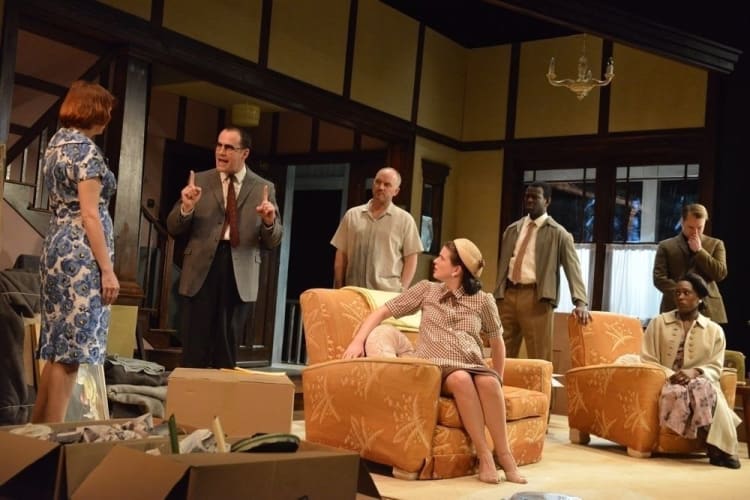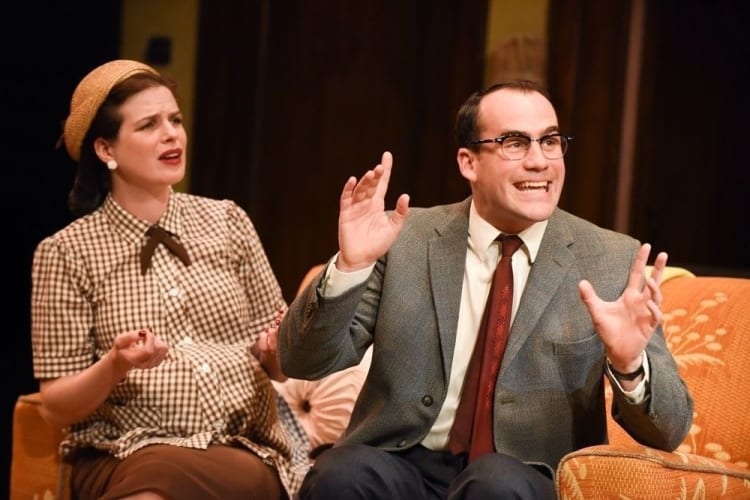Colchester's Mercury Theatre production of Bruce Norris’s play Clybourne Park is funny and well-paced. The dialogue is quick, the acting is always engaging. The director Daniel Buckroyd shows a fine attention to detail. The show is well worth seeing, though its politics are controversial.
The play is set in the living room of a house on the Clybourne Park estate in Chicago. Its starting point is the period just prior to the arrival to the house on this all-white estate in the 1950s of the black family at the centre of Lorraine Hansberry’s important anti-racism play A Raisin in the Sun. The second half takes us fifty years on to a time when the estate has become an African American neighbourhood and is trying to keep a white couple from moving in.
The play opens with Bev (Rebecca Manley) and Russ (Mark Womack) packing to leave. Karl (Ben Deery) from the Clybourne Park neighbourhood association and the local clergyman Jim (William Troughton) try to persuade Russ to back out of the sale to the black family.
Russ, who is very impressively played by Mark Womack, is grieving for his son who killed himself after confessing to murdering civilians in Korea. Believing the death to be partly a result of the local community shunning his son, he is in no mood to accommodate their objections to a black family.
By the 1990s, the estate has become African American. A white couple are planning to move in and improve the dilapidated house. A black couple are objecting to their plans. Ostensibly it’s a disagreement about style but it becomes evident that they simply do not want a white couple occupying the house.
Bruce Norris has a fine grasp on the mechanics of drama, impelling it forward by the conflicting motives of its characters and creating humour from their social awkwardness that sometimes slips into farce particularly when they defensively tell racist and sexist jokes. They manage to say a good deal without ever listening to each other.
Politically, the play reinforces false negative racial stereotypes about African Americans driving white people out of areas which they then wreck. It confirms the racist arguments of the character Karl about why a single black family should not be allowed to move onto the estate and, while the discrimination he proposes against black people is safely tucked away in the past, the discrimination against white people by black people is dangerously in the present.
Of course this play is fiction and contrasts sharply with the experience of being black in America where African Americans suffer the highest levels of residential discrimination and are disproportionally affected by environmental health issues.
Bruce Norris’s light satirical comedy of manners is not a serious account of the world. It will entertain and even make some of us uneasy. But it could and should have been so much better.


